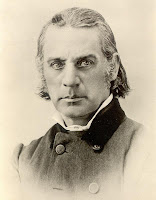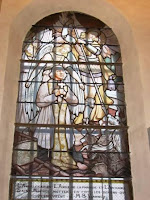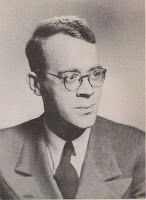"Some things, even though openly known, ought to be tolerated for a while. That is, when circumstances afford no suitable opportunity for openly correcting them. For sores by being cut at the wrong time are the worse inflamed; and, if medical treatments suit not the time, it is clear that they lose their medicinal function. But, while a fitting time for the correction of subordinates is being sought, the patience of the church leader is exercised under the very weight of their offenses. Therefore, it is well said by the psalmist, 'Sinners have built upon my back' (Psalm 128:3; LXX). For on the back we support burdens; and therefore he complains that sinners had built upon his back, as if to say plainly: those who I am unable to correct I carry as a burden laid upon me." Gregory the Great (c. AD 540-604) The above quote was included in CPH's The Lord Will Answer (2004), described as "a daily prayer catechism." Gregory's words resonate wit...














